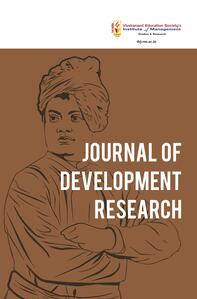
A sustainable future is one where human activity harmonize with the planet’s ecological balance, ensuring the well-being of current and future generations. Sustainability challenges are inherently complex and interconnected, necessitating interdisciplinary approaches. Collaboration between environmental science, engineering, economics, sociology, and technology disciplines enables holistic solutions. The presented research reflects an eclectic range of research topics that collectively emphasize humanity’s pursuit of sustainability, development, and innovation. These studies not only address urgent global challenges but also offer actionable frameworks to enhance societal and environmental outcomes.
The importance of sustainable agricultural practices has increased by manifolds when combating environmental and food security challenges. Rice cultivation in India alone comprises 26% of global rice production hence alternative rice farming methods are being explored for their potential contribution to fulfilling the Sustainable Development Goals (SDGs) and ensuring that the agrarian economy in India is growing at a sustainable rate. The analysis of sustainable rice cultivation methods like Alternative Wetting and Drying (AWD) and Direct Seeded Rice (DSR) underlines their potential alignment with social development goals and economic growth in India.
Similarly, the exploration of India’s organic food industry as a global competitor adds another layer to the discourse on sustainable agricultural practices. These studies emphasize the intersection of environmental stewardship and economic opportunities, offering critical insights for policymakers and stakeholders. The research examines key factors such as sustainability benefits and market dynamics shaping the industry's trajectory. It offers recommendations for stakeholders aiming to harness India's full potential to reach the global organic food market. Through strategic investments and initiatives, India can position itself as a leader of organic products, contributing to both economic growth and sustainable agricultural practices.
In the dynamic business landscape of today organizations face continuous disruption driven by competition, technological advancements, geopolitical volatility, and an increasingly informed consumer base. Amidst newspaper reports of toxic leadership and toxic culture prevailing in Indian banking sector, employee wellbeing of has become a significant aspect for better performance in recent times. The research has proposed conceptual framework linking spiritual leadership to employee well-being and job engagement reflects a shift in organizational research towards holistic development. By addressing dimensions like vision, hope, and altruistic love, this study highlights the untapped potential of spiritual well-being in fostering meaningful and productive workplaces.
With a population of over 170 million, Nigeria produces a staggering volume of solid waste, of which less than 20% is collected through a formal system. The pressing issue of waste management on Nigeria’s Nnamdi Azikiwe University campus underscores the need for innovative biological waste processing and environmental education strategies. The study recommends that the university management prioritise building a biological waste processing facility and champion the creation of environmental waste management education awareness. This study exemplifies a localized problem with global implications, as urban waste management continues to challenge developing nations.
The integration of Agile and Waterfall approaches to navigate remote collaboration during the COVID-19 pandemic showcases the adaptability of management practices. This research reinforces the importance of hybrid methodologies to sustain organizational efficiency amid unprecedented disruptions.
The study on financial inclusion like India’s Pradhan Mantri Jan Dhan Yojana (PMJDY) brings to light the strides made in financial inclusion and its impact across India. The study attempts to assesses financial inclusion across Indian states and union territories, focusing on three key dimensions: ATM, insurance, and mutual fund penetration. The findings of this study provide valuable insights into the current state of financial inclusion in India and will contribute to effective policy formation aimed at enhancing financial inclusion across Indian states and union territories.
HR analytics emerges as a transformative tool to optimize employee performance and business efficiency. By leveraging data-driven insights, organizations are equipped to make informed decisions, enhancing competitiveness in dynamic market environments. In this paper, the researcher tries to understand the use of HR analytics tools. Also, the researcher focuses on the benefits of employees with the help of HR analytics. With the help of analytics tools, organizations can use the organization's existing data to analyse issues such as performance, employee turnover, and employee attitude.
The impact of remittances on economic development in Sub-Saharan Africa, analyses its effects on factors like savings, remittance flows, monetary base, and overall economic growth from 1998 to 2022. This study uses the System Generalized Method of Moments (SGMM) analysis to examine the impact of remittances on economic growth in Sub-Saharan Africa. It analyses the relationship between remittances and key economic indicators, including real gross domestic product (RGDP), money supply (M2), and government expenditure (GEX).
Together, these papers offer a compelling narrative of progress and the human spirit’s resilience in addressing complex global challenges. They reveal how financial systems can drive economic stability and equitable growth. From agriculture and spirituality to financial inclusion and waste management, these studies lay the groundwork for innovative solutions that align with the shared vision of a sustainable and equitable future.
Bhavna Raina
Associate Editor
Vivekanand Education Society’s
E-mail: bhavna.raina@ves.ac.in